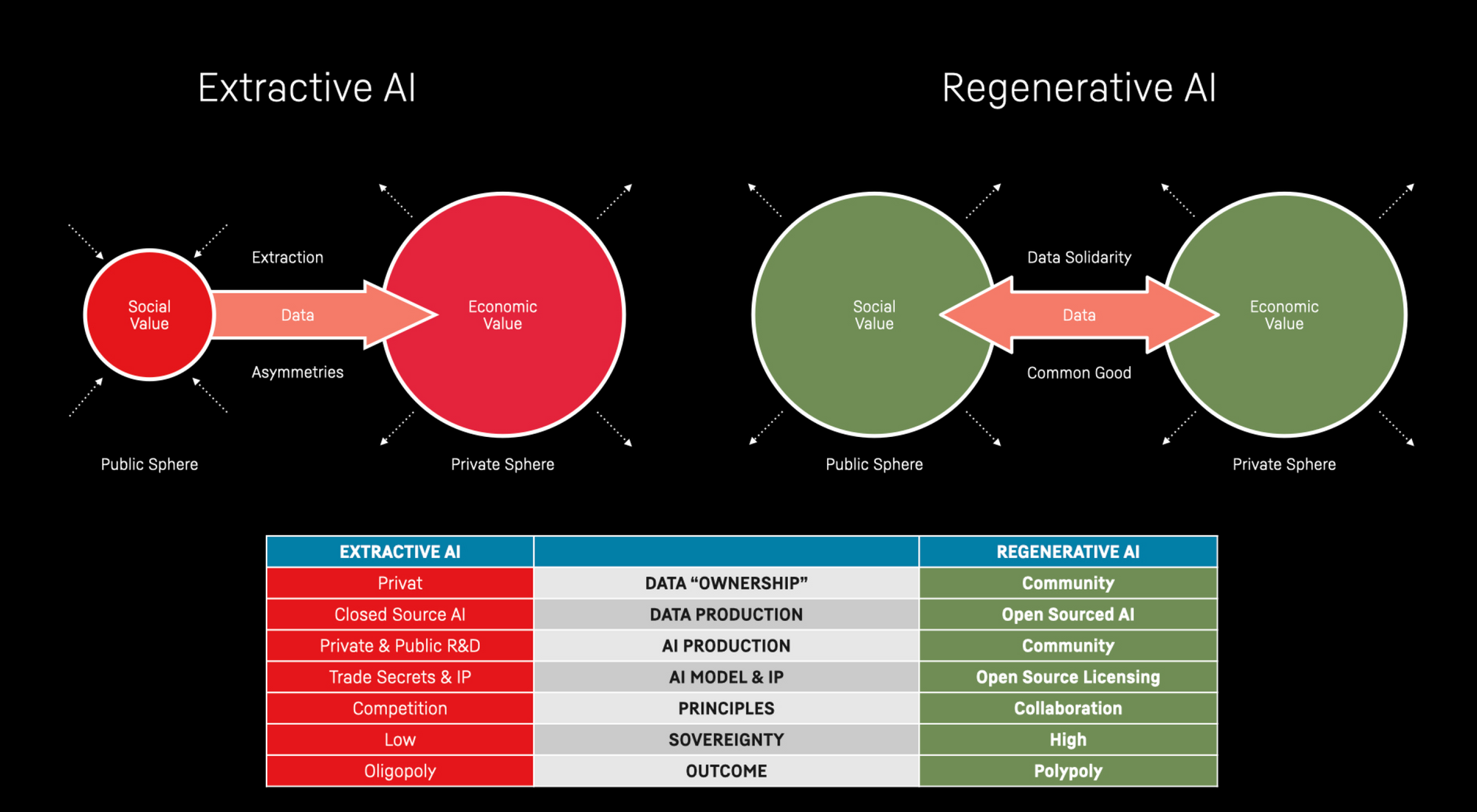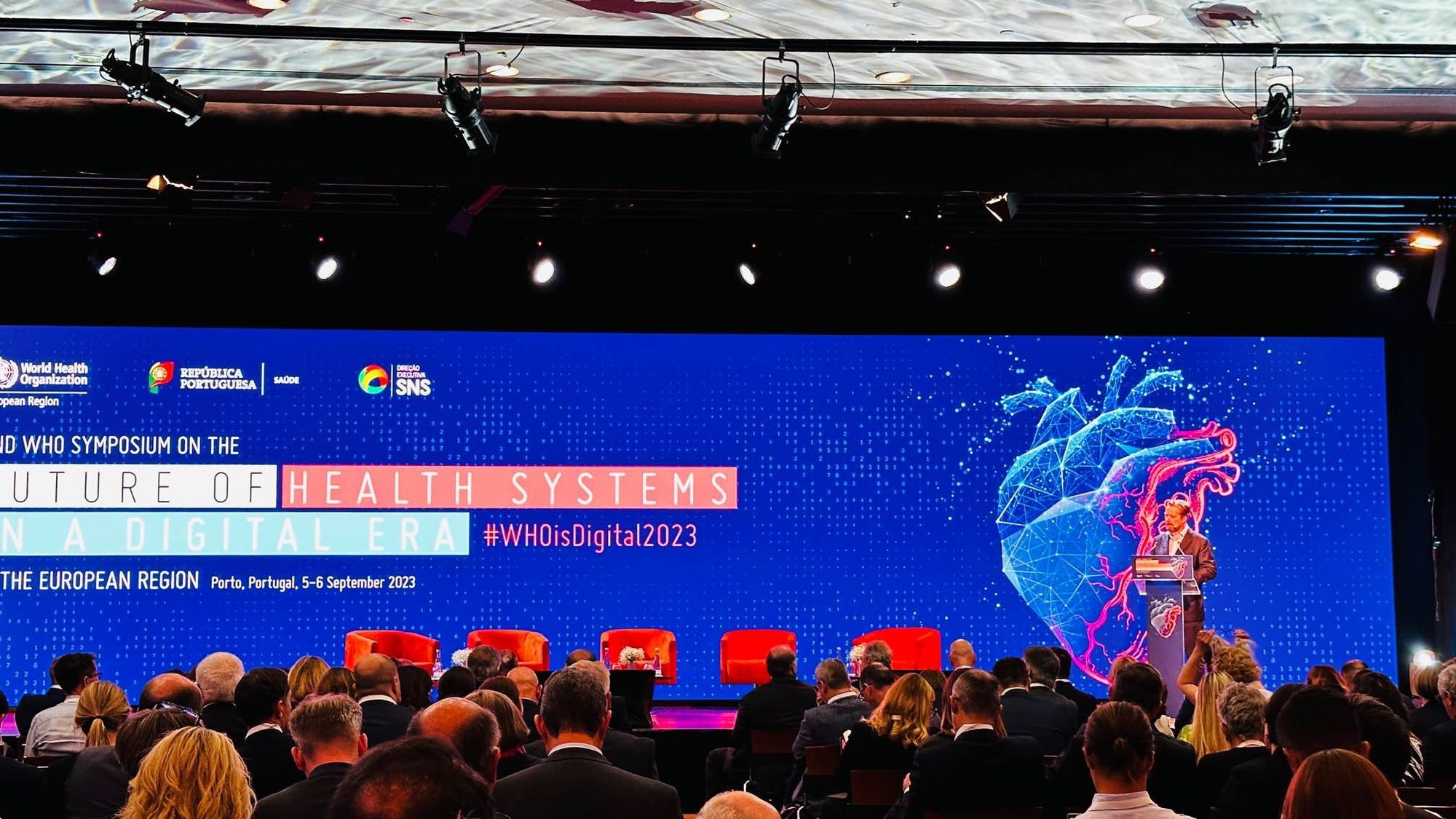Regeneration, Sustainability -- 🦛 💌 Hippogram #20
The 20th edition of the Hippogram focuses on the myths of open source
You are about to read our newsletter for health and tech professionals -
the Hippogram.
I'm Bart de Witte, and I've been inside the health technology industry for more than 20 years. In that time, I've witnessed the evolution of technologies that are changing the face of healthcare, business models and culture in unexpected ways.
In the newsletter, I share my knowledge and insights about building a more equitable and sustainable global digital health. Sharing knowledge is also what my Hippo AI Foundation, named after Hippocrates, focuses on and it is an essential part of a modern Hippocratic oath. Know-How will increasingly result from the data we produce, so it's crucial to share it in our digital health systems.
Was this newsletter forwarded to you? You can sign up here for the whole Hippo experience.
Trophic cascades
During my time at IBM, I organized workshops with top executives and those tasked with charting their company's future. Now, let me tell you, I'm all about systems thinking – looking at the big picture. But I gotta admit, I got pretty frustrated. Why? Because most of the strategies I saw were all about quick wins, and they just weren't cutting it. It felt like there was a serious lack of system thinking and there was a too strong focus on technology.
So, what did I do? Well, I kicked off my workshops with an excercise. I'd show two pictures of a landscape: one from 1998 and another from 2017. But it wasn't just pretty images; it was about Key Performance Indicators, or KPIs. Things like a whopping 300% increase in leafy trees, cottonwoods reaching for the sky 300% taller, bird populations soaring 75 times, and more beaver ponds than you could shake a stick at – with everything from amphibians to fish living it up.

I challenged workshop participants to come up with a plan to transition from from point A to point B. And guess what? They all leaned towards a "humans in control" approach. Taming those herbivore populations by moving them around or going hunting, planting trees like there's no tomorrow, and even bringing in heavy machinery to dig ponds and reshape the landscape, to meet the specific KPI’s I laid out.
Now, these participants were sharp, well-educated, and well-trained. But they were all about a top-down, human-controlled strategy that aimed to micromanage various components of the ecosystem to achieve the desired outcomes.
But let me spill the beans – those KPIs weren't just pulled out of thin air. Nope, they came straight from a real-deal research paper called "Trophic cascades in Yellowstone: The first 15 years after wolf reintroduction" You see, back in 1995, they reintroduced gray wolves to Yellowstone National Park after a 70-year hiatus. And guess what? Research showed it kick-started a trophic cascade, just like the KPIs demonstrated.
Regenerative AI
Now, let's talk about something big – the Regenerative Economy. It's not just about sustainability; it's about making things better. Think about restoring and renewing, not just maintaining the status quo. It's like a circular economy, where things keep on going, and everyone benefits – not just a select few.
And this brings me to a project with the HIPPO AI Foundation. I just presented it to ministers and policy makers at the WHO 2nd Symposium on the future of health systemsin a digital era in the European region, in beautiful Porto. Here's the deal: the current distribution of healthcare data is far from equitable, which poses significant challenges and risks, especially in the context of artificial intelligence (AI) in healthcare.
I'm raising a red flag because I see us heading down the same path that messed up Yellowstone's ecosystem in the first place. Just like there, where imbalances came from extractive actions, health data capitalism and closed AI standards could make healthcare data inequalities worse.
So, we're all about this new idea called "Regenerative AI". It's about fairness, inclusivity, and making sure AI benefits everyone. We're saying no to closed-source systems and yes to open collaboration. Our goal? To level the playing field and make sure healthcare serves everyone, not just a privileged few.
This idea fits right in with the Regenerative Economy – a fresh way of doing things. It's about restoring, renewing, and making sure everyone gets a fair shot. That's the kind of thinking we need for a healthier world.
But here's the exciting part – we're bringing in something big, something called "Regenerative AI." It's a game-changer that's all about fairness, inclusivity, and keeping things sustainable. We're saying goodbye to the old ways that take and take, leaving nothing in return. Regenerative AI is all about "data solidarity," where everyone gets a piece of the pie.

That's where Hippo AI's Regenerative AI Framework comes in. We're saying data and AI should belong to the people, not just a privileged few. So, we're pushing for open-source and copyleft licensing, teamwork, and building a system based on shared values. Our mission? To take on those AI models that only benefit a select few in healthcare. We want to create incentives in financial markets and make sure data and AI serve everyone.
We're all about measuring the social impact of data and AI in medicine, and we're tackling the challenges of data imbalances in the age of AI. Our ultimate goal? A future where data and AI in healthcare are used responsibly and fairly. We're pushing for innovations that make healthcare accessible, top-quality, and equal for all.
And guess what? To make this framework a shared effort, we're opening it up to the public (register here) . You can join us by registering here, and we've also set up a website where you can get updates on our progress.
As we launch the Regenerative AI framework, we're also reshaping the Hippo AI Foundation. But we're not doing this alone – to make this vision a reality, we're looking for partners who believe in what we're doing. If you're interested in being part of this initiative, don't hesitate to shoot us an email. We're excited to have you on board!
Where to find me this month: 11 September, Sana Dialog in Berlin. From September 19th to 22nd, the UN General Assembly will take place in New York, USA. Following that, from September 23rd to 24th, the 9th National Hyperlipidemia Academy will be held in Frankfurt, Germany. On September 28th, the Smart Hospital Excellence Forum will also take place in Frankfurt, Germany. Lastly, on September 30th, the Volcano Innovation Summit is scheduled to be held in Antigua Guatemala.
What Bart recommends
Exciting research and media
🌎 AI Safety and the Age of Dislightenment I absolutely admired Jeremy Howard's piece, where he passionately champions openness, humility, and extensive collaboration in crafting improved responses that align with our core principles and values. These responses have the potential to adapt as we gain a deeper understanding of this technology, which holds the power to shape society for both positive and negative outcomes.
🌎 Supporting Open Source and Open Science in the EU AI Act Our friends from the Open Future Foundation wrote their proposal for proportionate requirements for foundational models recognizes that there is much overlap between the values behind the AI Act and existing open source AI development practices.
🌎 Regulating Big Tech expansionism? Sphere transgressions and the limits of Europe’s digital regulatory strategy In this paper, Sharon Tamar, who participated in lastz years Hippo AI Summit, examines the EU's regulatory efforts to address the expanding influence of Big Tech, including initiatives like GDPR, DMA, DSA, and the AI Act. They argue that these regulations fall short in addressing the risks posed by Big Tech expansionism, particularly in terms of non-equitable returns to the public sector, the reshaping of sectors to favor technology firms, and new dependencies on tech companies for essential services. The authors suggest that Europe's digital strategy, which primarily focuses on data protection and fair markets, may not effectively tackle the broader societal implications of Big Tech's influence.
📼 Animation
Must see animation that shows how Open Source AI took over the lead
📼 Videos
Listen to Jürgen Schmidthuber's thoughts regarding EU regulations and the open-source community.
Listen to Yan Lecun's thoughts regarding EU regulations and the open-source community.
How to support the Hippo AI Foundation
Help us to change the world - dataset by dataset
Hippo AI Supporters Shop
My Boobs Are Not For Sale!
The Hippo AI Foundation wants to empower people like you to take action against global inequalities in healthcare. It all starts with every one of us taking a stand and showing what we believe in. Our vision is a future where all citizens have access to good healthcare. To reach our goal, we're advocating against the privatisation of medical knowledge and for medical data and AI to become a common good.

Please help us with your donation!
We started our humanitarian mission to create artificial medical intelligence as a common good. To achieve this goal, we need your support and are incredibly grateful to all our supporters that believe in our mission. You can support us with a monetary donation via direct debit/transfer, with details below. Every donation counts. Building data and AI commons are made possible by your donations.
Thank you for your support!
Share Knowledge, Empower Humans
Thank you for reading the Hippogram. You can help with our mission and share knowledge as well - forward this email at least to one person, or share it across your favourite social network.
I'll be back with more news; until then, stay well and hope you are enjoying September.
Bart.
Was it useful? Help us to improve!
With your feedback, we can improve the letter. Click on a link to vote:
About Bart de Witte
Bart de Witte is a leading and distinguished expert for digital transformation in healthcare in Europe but also one of the most progressive thought leaders in his field. He focuses on developing alternative strategies for creating a more desirable future for the post-modern world and all of us. He founded the non-profit organisation HIPPO AI Foundation, located in Berlin.
About Hippo AI Foundation
The Hippo AI Foundation is a non-profit that accelerates the development of open-sourced medical AI by creating data and AI commons (e.q. data and AI as digital common goods/ open-source). As an altruistic "data trustee", Hippo unites, cleanses, and de-identifies data from individual and institutional data donations. This means data that is made available without reward for open-source usage that benefits communities or society at large, such as the use of breast-cancer data to improve global access to breast cancer diagnostics.

